


Books in series

Korto Malteze 2
U znaku Jarca
1970

Corto Maltese
Beyond The Windy Isles
1971

Silence
1980

You are There
1979

An Author in Search of Six Characters
The African Adventure
1983

La Belette
1983

Dies Irae
The African Adventures of Giuseppe Bergman, Part 2
1983

Korto Malteze 7
Venecijanska bajka
1977

Korto Malteze 5
Etiopljani
1975

The Escape
1982

Fever in Urbicand
1984

Les Celtiques
1971

Bran Ruz
1981

La Jonque Fantôme Vue De L'orchestre
1981

De mooiste vrouw is soms een man
1987
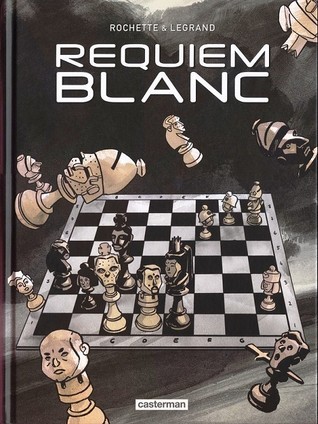
Requiem blanc
2014

Le roman de Renart
1985

120, Rue de la Gare II
Jo Eiffeltoren
1988
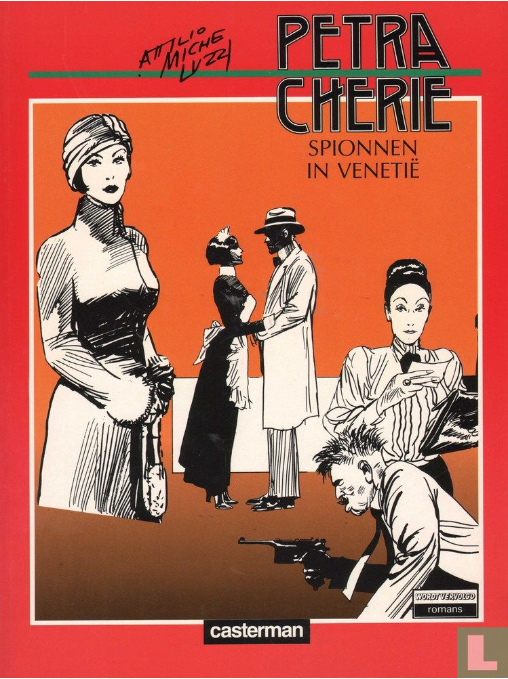
Spionnen in Venetie
1988

Velika moć malog Šninkela
1988
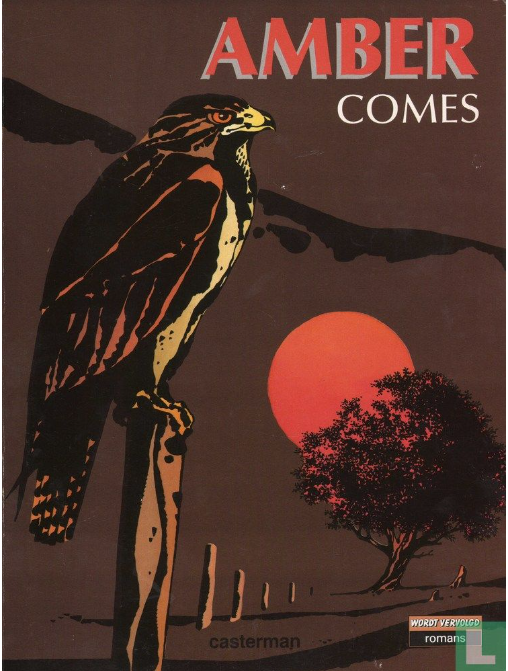
Amber
2000
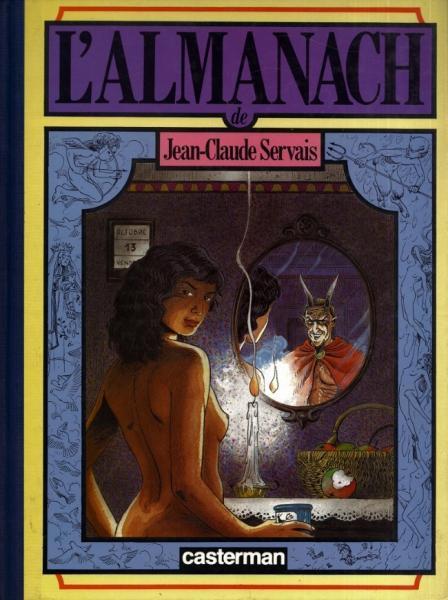
L'almanach
1988

Perchance to Dream
The Indian Adventures of Giuseppe Bergman
1988

Bonjour ma chérie
1988
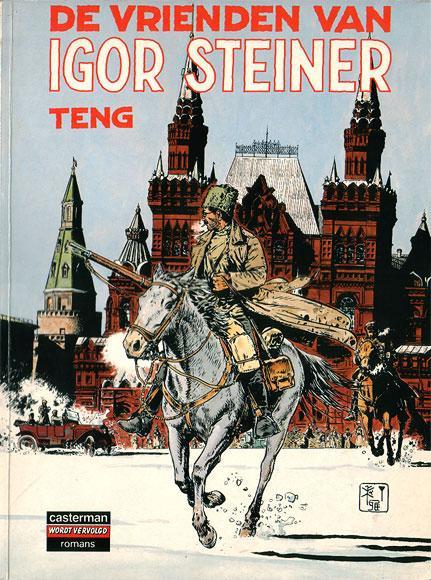
De vrienden van Igor Steiner
1989

L'appel de Madame la Baronne
1989

Ada viidakossa
1979

Muizentheater
1990
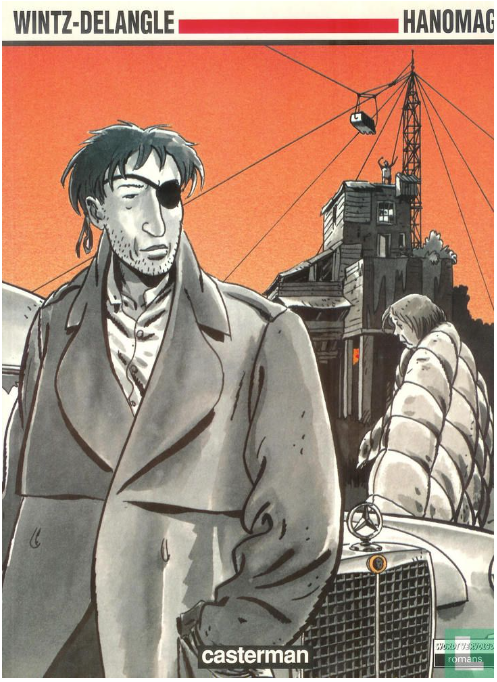
Hanomag
1991

Iris
1991
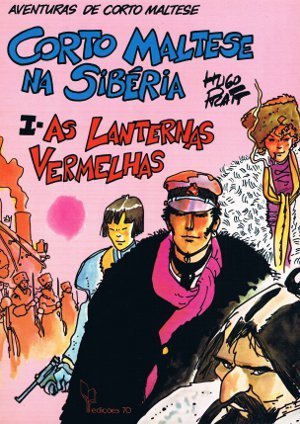
Corto Maltese na Sibéria
I - As Lanternas Vermelhas
1974
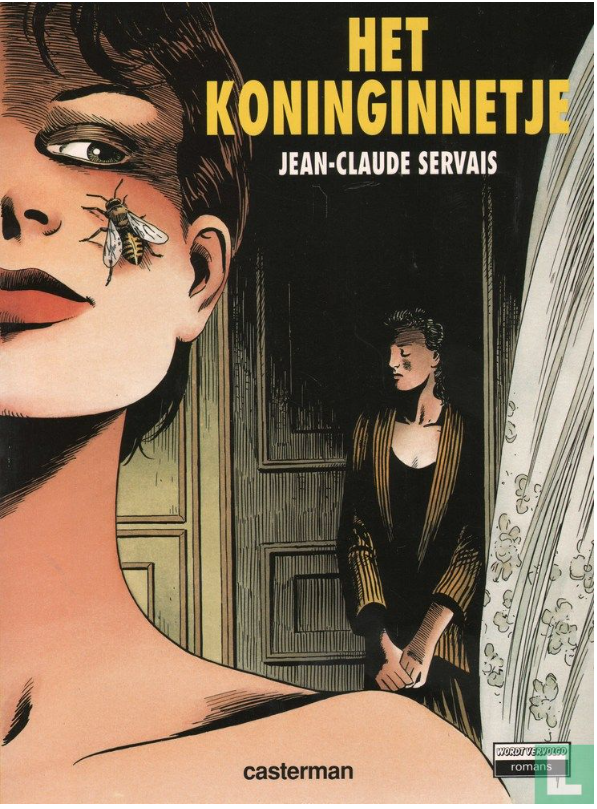
Het koninginnetje
1992

La Maison où rêvent les arbres
1995
Authors

Jean Van Hamme, is a Belgian novelist and comic book writer. He has written scripts for a number of Belgian/French comic series, including Histoire sans héros, Thorgal, XIII, Blake and Mortimer, Lady S and Largo Winch. More on the brilliant, Jean Van Hamme: http://lambiek.net/artists/v/van-hamm...

Peter van Dongen kon op de kleuterschool al beter tekenen dan andere kinderen. Hij studeerde na de middelbare school aan het Grafisch Lyceum in Amsterdam en is na zijn opleiding als illustrator gaan werken. Zijn eerste boek Muizentheater, een verhalenbundel rond de lotgevallen én de ondergang van twee broers in crisistijd en oorlog, voltooide hij in 1990. Hiervoor ontving hij de Stripschappenning voor het beste album van dat jaar. Naast zijn werk als commercieel illustrator begon hij in 1991, direct na de bekroning van Muizentheater, aan zijn tweede boek, Rampokan-Java. Uiteindelijk zou hij nog vier jaar aan Rampokan-Java werken. Van Dongen leerde Indië kennen uit de verhalen van zijn Chinees-Indische moeder. Het tweede deel, Rampokan-Celebes, opent met het beruchte bombardement van de havenstad Makassar, dat zijn moeder als klein meisje meemaakte. Het bombardement werd uitgevoerd door de marine van het jonge Indonesië dat nog een appeltje te schillen had met de restanten van het Koninklijk Nederlands-Indisch Leger. Peter van Dongens tekenstijl is erg beïnvloed door bijvoorbeeld Kuifje. Hij gebruikt de Klare Lijn-stijl in zijn werk. Er zijn veel stilistische overeenkomsten tussen Hergé en Van Dongen. Maar daarnaast zijn er ook veel verschillen. Van Dongen tekent meer cinematografisch, wat volgens hem ook logisch is met de invloed van televisie vandaag de dag. Van Dongen snijdt als televisie scènes door elkaar heen, iets wat weinig in strips wordt toegepast. Rampokan is in samenwerking met Joost Swarte vormgegeven. In de zomer van 1998 heeft Het Parool dagelijks een pagina uit Rampokan-Java voorgepubliceerd. Met Rampokan-Java won Van Dongen de Stripschappenning voor 'Beste Album' in de categorie 'Oorspronkelijk Nederlands'. Het werd bekroond als een van de Best Verzorgde Boeken van 1998. Daarnaast ontving Van Dongen voor Rampokan-Java in 1999 in Brussel de Prijs de Leeuw. Voor Rampokan-Celebes mocht van Dongen in 2005 de Stripschappenning in ontvangst nemen, ditmaal in de categorie 'Oorspronkelijk Nederlands Literair'.

(aka Didier Comès, vrai nom Dieter Herman Comes) Dieter Comes est né en 1942 à Sourbrodt, petit village des cantons de l'est. Son père parlant allemand et sa mère wallon et français, il se définit lui-même comme étant un "bâtard de deux cultures", caractéristique dont on retrouvera la trace dans son imaginaire. En sortant de l'école à 16 ans, il sera dessinateur industriel dans une entreprise textile de Verviers. En même temps, il s'initie à la musique. Il s'intéresse surtout au jazz, s'essayant aux percussions, et ne viendra à la bande dessinée que plus tard. En 1969, il écrit Hermann, une série de gags humoristiques publiée dans les pages Jeunesse du Soir. En 1973, Pilote publie le premier épisode d'Ergun l'Errant, Le Dieu vivant, dont le deuxième épisode, Le Maître des Ténèbres, ne paraîtra qu'en 1980 chez Casterman. En 1975, celui qu'on considère déjà comme l'héritier spirituel d'Hugo Pratt, écrit L'Ombre du Corbeau. C'est en 1980 que Casterman publie Silence, album qui consacre Comès et pour lequel il abandonne la couleur pour la technique du noir et blanc. Ensuite viendront La Belette (1983), Eva (1985), L'Arbre-Coeur (1988), Iris (1991) et La Maison où rêvent les arbres (1995).


Hugo Pratt, born Ugo Eugenio Prat (1927–1995), was an Italian comic book writer and artist. Internationally known for Corto Maltese, a series of adventure comics first published in Italy and France between 1967 and 1991, Pratt is regarded as a pioneer of the literary graphic novel. Born in Rimini, Italy, Pratt spent his childhood in Venice in a cosmopolitan family environment. In 1937, ten-years old Hugo moved with his parents to Ethiopia, East Africa, following the Italian occupation of the country. Pratt's father eventually died as a prisoner of war in 1942. Hugo himself and his mother spent some time in a British prison camp in Africa, before being sent back to Venice. This childhood experiences shaped Pratt's fascination with military uniforms, machineries and settings, a visual constant in most of his adult works. As a young artist in post-war Italy, Pratt was part of the so-called 'Venice Group', which also included cartoonists Alberto Ongaro, Mario Faustinelli. Their magazine Asso di Picche, launched in 1945, mostly featured adventure comics. In 1949 Pratt moved to Buenos Aires, Argentina, where he worked for various local publishers and interacted with well-known Argentine cartoonists, most notably Alberto Breccia and Solano López, while also teaching at the Escuela Panamericana de Arte. During this period he produced his first notable comic books: Sgt. Kirk and Ernie Pike, written by Héctor Germán Oesterheld; Anna nella jungla, Capitan Cormorant and Wheeling, as a complete author. From the summer of 1959 to the summer of 1960, Pratt lived in London drawing war comics by British scriptwriters for Fleetway Publications. He returned to Argentina for a couple more years, then moved back to Italy in 1962. Here he started collaborating with the comics magazine Il Corriere dei Piccoli, for which he adapted several classics, including works by Robert Louis Stevenson. In 1967, Hugo Pratt and entrepreneur Florenzo Ivaldi created the comics magazine Il Sergente Kirk, named after one of Pratt's original characters. Pratt's most famous work, Una ballata del mare salato (1967, The Ballad of the Salty Sea) was serialised in the pages of this magazine. The story can be seen as one of the first modern graphic novels. It also introduced Pratt's best known character, mariner and adventurer Corto Maltese. Corto became the protagonist of its own series three years later in the French comics magazine Pif gadget. Pratt would continue releasing new Corto Maltese books every few years until 1991. Corto's stories are set in various parts of the world, in a given moment in the first three decades of the 20th century. They often tangently deal with real historical events or real historical figures. The series gave Pratt international notoriety, being eventually translated into fifteen languages. Pratt's other works include Gli scorpioni del deserto (1969-1992), a series of military adventures set in East Africa during WWII, and a few one-shots published for Bonelli's comic magazine Un Uomo Un'Avventura ('One Man One Adventure'), most notably the short story Jesuit Joe (1980, The Man from the Great North). He also scripted a couple of stories for his pupil Milo Manara. Pratt lived in France from 1970 to 1984, then in Switzerland till his death from bowel cancer in 1995.

Jacques Tardi is a French comics artist, born 30 August 1946 in Valence, Drôme. He is often credited solely as Tardi. After graduating from the École nationale des Beaux-Arts de Lyon and the École nationale supérieure des arts décoratifs in Paris, he started writing comics in 1969, at the age of 23, in the comics magazine Pilote, initially illustrating short stories written by Jean Giraud and Serge de Beketch, before creating the political fiction story Rumeur sur le Rouergue from a scenario by Pierre Christin in 1972. A highly versatile artist, Tardi successfully adapted novels by controversial writer Louis-Ferdinand Céline or crime novelist Léo Malet. In Malet's case, Tardi adapted his detective hero Nestor Burma into a series of critically acclaimed graphic novels, though he also wrote and drew original stories of his own. Tardi also created one of French comics' most famous heroines, Adèle Blanc-Sec. This series recreates the Paris of early 20th century where the moody heroine encounters supernatural events, state plots, occult societies and experiments in cryogenics. Another graphic novel was Ici Même which was written by Jean-Claude Forest, best known as the creator of Barbarella. A satire, it describes the adventures of Arthur Même who lives on the walls of his family's former property. Tardi has produced many antiwar graphic novels and comics, mainly focusing on the collective European trauma of the First World War, and the pitfalls of patriotism spawned several albums (Adieu Brindavoine, C'était la guerre des tranchées, Le trou d'obus, Putain de Guerre...). His grandfather's involvement in the day-to-day horrors of trench warfare, seems to have had a deep influence to his artistic expression. He also completed a four-volume series on the Paris Commune, Le cri du peuple. Fantagraphics Books translate and publish in English a wide range of Tardi's books, done by editor and translator Kim Thompson.[3] The books released so far are West Coast Blues (Le Petit bleu de la côte ouest), You Are There (Ici Même), and It Was the War of the Trenches (C'était la guerre des tranchées); a single album collecting the first two Adele Blanc-Sec volumes has also been published. ->http://en.wikipedia.org/wiki/Jacques\_...


Daniel Torres, is a Spanish comics artist and writer, known for several series, including Rocco Vargas. Librarian Note: There is more than one author in the Goodreads database with this name.

Attilio Micheluzzi (1930-1990) was an Italian comics artist. Born in Umag, now in Croatia but at the time part of Italy, Micheluzzi graduated in architecture and worked for several years in Africa. Returned to Italy in the early 1970s, he started collaborating with the comics magazine Corriere dei Piccoli, often under the pen name Igor Arzbajeff. Among his works the adventure series Petra Chérie and Johnny Focus, as well as the science fiction series Roy Mann, with scripts by Tiziano Sclavi. Napoli Comicon, the second biggest comic festival in Italy, has held the 'Attilio Micheluzzi Awards' honouring comics creators annually since 1998.

Jean-Claude Forest, né le 11 septembre 1930 au Perreux-sur-Marne et mort le 30 décembre 1998 à Lagny-sur-Marne, est un auteur de bandes dessinées français. Célèbre pour son imagination débordante, l'élégance de son trait et le sex-appeal de ses héroïnes (Marie Mathématique, Bébé Cyanure, Hypocrite et Barbarella, portée à l'écran par Roger Vadim, avec Jane Fonda dans le rôle-titre), Jean-Claude Forest a participé au chamboulement de la bande dessinée francophone, et notamment de la bande dessinée dite « adulte ».



